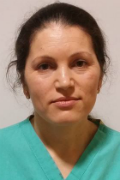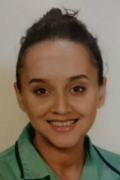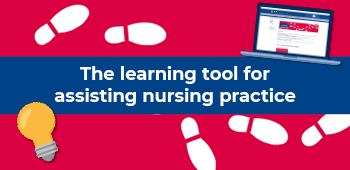
Become a Health Care Assistant and Health Care Support Worker
Health Care Assistants (HCAs) and Health Care Support Workers (HCSWs) are a vital part of the nursing team. They can be found working in all sorts of settings, including hospitals, doctors' surgeries and the community.
Our members work across every health care discipline, including the criminal justice system, mental health and learning disability. They work with infants, children and young people and in the care of the older person, supporting registered nurses in the delivery of nursing care.
To carry out your role safely, you must be properly trained and supervised, and your employer has a duty to make sure you are appropriately trained and that you are assessed as competent for your role. Take a look at our learning and resources section to see if you have received all the training you could have. Your employers must provide an induction for you so that you have the knowledge, skills and understanding to do your role in a compassionate and caring way, wherever you work. Each UK country has its own guidance and standards for induction. Our online learning resource First Steps for HCAs is a perfect supplement to your induction programme and can help you to build on your knowledge and understanding on a range of important issues.
Become an HCA or HCSW
There are no specific national requirements for becoming an HCA or HCSW. You simply need to be passionate about working with people and be caring and compassionate to apply for a job as one.
Once you have been accepted, your employer will provide the training you need. You should consider getting work experience before you apply so you'll know what it’s like to work in health care. You may find it helpful to look at First Steps for HCAs for background information.
The Care Certificate is an agreed set of standards that define the knowledge, skills and behaviours expected of specific job roles in the health and social care sectors. It's made up of the 15 minimum standards that should be covered if you are 'new to care' and should form part of a robust induction programme.
The Care Certificate was developed jointly by Skills for Care, Health Education England and Skills for Health.
Training on the job
Your training will vary depending on where you work. That's because the knowledge and skills needed to work in a GP surgery, for example, are different from those required to work in a residential home or in a mental health setting. Some employers have internal training departments while others use further education colleges or offer apprenticeships, but you must be trained for the role you will perform. Find out more on the RCN Careers webpages and the NHS Careers website.
Find out more about the role by viewing our case studies

Lilia Ciobanu
Lilia Ciobanu is a Healthcare Assistant (HCA) at Barts Health NHS. Lilia works as a Theatre Nursing Assistant. Read Lilia's case study.

Alia Shah
Alia Shah is a Health Care Assistant (HCA) at Great Ormond Street hospital. Alia works on a haematology and oncology ward. Read Alia's case study.

Ian White
Ian White is a Health Care Assistant (HCA) at Moorfields Bedford Hospital. Ian works as a Theatre Assistant. Read Ian's case study.

Ann Witcomb
Ann Witcomb is a Senior Health Care Assistant (HCA) working at Westerham GP practice. As well as running busy general clinics Ann assists with the training a development of other HCAs. Read Ann's case study.
Nursing support workers
- Become a Health Care Assistant and Health Care Support Worker
- Become an Assistant Practitioner
- Become a Student Nursing Associate
- Become a Nursing Associate
- Learning resources for the nursing support workforce
- UK wide information for the nursing support workforce
- Accountability and delegation
- RCN Nursing Support Workers Facebook Group






